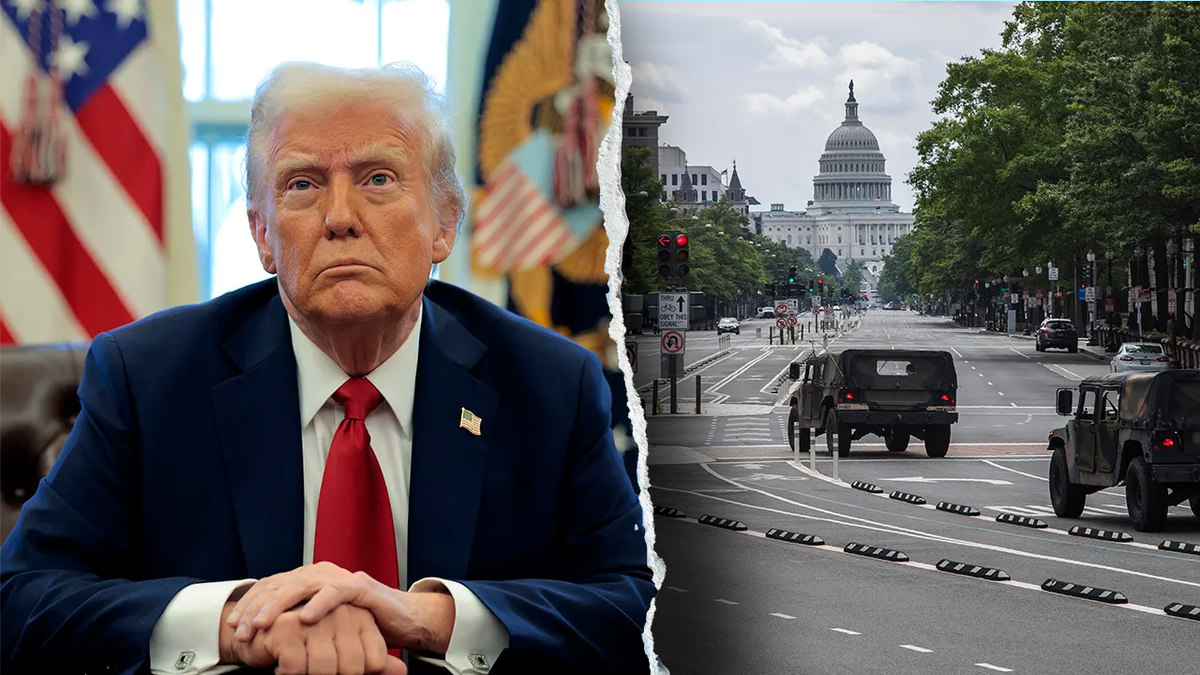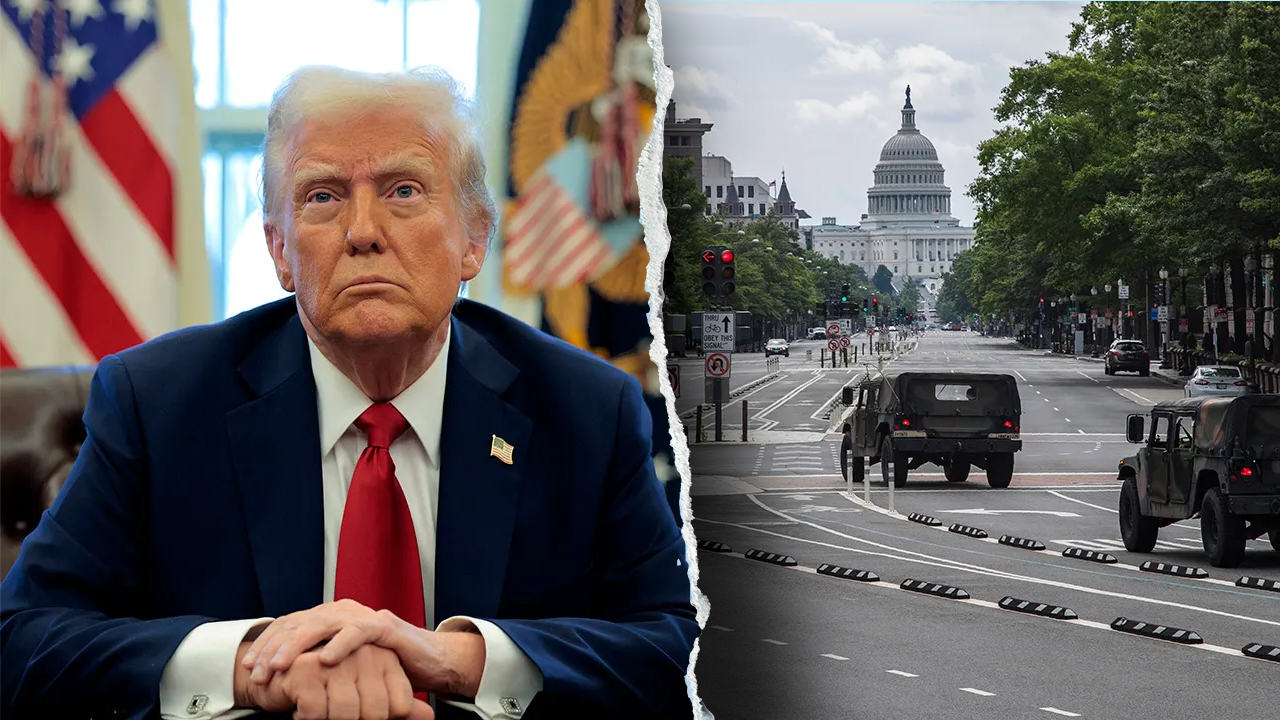
NEWYou can now listen to Fox News articles!
The Posse Comitatus Act of 1878, as amended, provides that “Whoever, except in cases and under circumstances expressly authorized by the Constitution or an Act of Congress, willfully uses any part of the Army, the Navy, the Marine Corps, the Air Force, or the Space Force as a posse comitatus or otherwise to execute the laws shall be fined under this title or imprisoned not more than two years, or both.”
No one has ever been prosecuted under the act, and it has rarely been the subject of comment by the U.S. Supreme Court.
The Brennan Center for Justice, a non-partisan, but decidedly liberal law and policy center, noted that the law has “ignominious origins” in the collapse of Reconstruction.
POSSE COMITATUS ACT AT CENTER OF TRUMP-NEWSOM NATIONAL GUARD DISPUTE IN LA
The return to power of white Southern Democrats in federal and state offices after Reconstruction ended in 1877-1878 led to the rapid introduction and enforcement of Jim Crow laws over the shattered Confederacy as Union troops were withdrawn over the defeated areas of rebellion. (The last federal troops of the Reconstruction Era were withdrawn on April 24, 1877, on orders from President Rutherford B. Hayes from the state house in Louisiana — the last federally defended state house in the South.) The presence and power of the Union troops were reviled by the defeated partisans of the Confederacy and the military governments whose will they enforced proved ineffective in reforming the law and practices of the Old South. Following the Compromise of 1876, some Republicans of that era joined Democrats to pass the statute to assure that military government would not return to the South.
CLICK HERE FOR MORE FOX NEWS OPINION
The original law has been amended several times, most recently in 1981 and 2021. Some scholars spend considerable time on its actual reach, with one, R.H. Moore providing this summary for the Department of Justice’s Journal of Criminal Justice in 1987:
“Congress, by legislation, has allowed the use of the military in cases of domestic violence, protection of Federal property, and enforcement of some Federal laws and court orders. The growing drug problem in the United States and the inability of Federal and local law enforcement officials to meet the challenge of massive drug inflow led Congress in 1981 to enact legislation providing for military cooperation with civilian law enforcement officials. Although recognizing the Posse Comitatus restrictions, the law opens the door for extensive use of the military in civilian law enforcement. The military has been slow to respond because it does not wish to become embroiled in civilian law enforcement, and there are questions concerning funding. Further, the military does not want to have its readiness capability impaired by diverting resources toward civilian law enforcement. The Department of Defense has developed directives to provide types of direct and indirect assistance to civilian law enforcement agencies. Currently, the military collects information and uses military equipment in tracking violators of the drug laws. Demands for greater military involvement in the war on drugs are being made. Military cooperation with civil law enforcement agencies can be expected to increase.”
The most recent amendment to the Act came in the 2022 National Defense Authorization Act which broadened the law to explicitly cover all branches of the military.
CLICK HERE TO GET THE FOX NEWS APP
The limits and effectiveness of the statute are not subjects of either settled law or study. As President Donald Trump deploys the National Guard and the military in new and sometimes novel circumstances, be alert that commentators invoking the Posse Comitatus Act are almost certainly relying on the talking points of whatever political party to which they belong. Bottom line: As of now, nothing Trump has done with the National Guard in Washington, D.C. is remotely close to illegal.
If Trump dispatches the Guard to any city other than the federal enclave, expect attempts to challenge the scope of presidential powers in federal court. If the Supreme Court eventually reviews such a deployment and issues a ruling on the merits, only then will there be a conclusive interpretation of the law’s reach and limits.
Hugh Hewitt is host of “The Hugh Hewitt Show,” heard weekday mornings 6am to 9am ET on the Salem Radio Network, and simulcast on Salem News Channel. Hugh wakes up America on over 400 affiliates nationwide, and on all the streaming platforms where SNC can be seen. He is a frequent guest on the Fox News Channel’s news roundtable hosted by Bret Baier weekdays at 6pm ET. A son of Ohio and a graduate of Harvard College and the University of Michigan Law School, Hewitt has been a Professor of Law at Chapman University’s Fowler School of Law since 1996 where he teaches Constitutional Law. Hewitt launched his eponymous radio show from Los Angeles in 1990. Hewitt has frequently appeared on every major national news television network, hosted television shows for PBS and MSNBC, written for every major American paper, has authored a dozen books and moderated a score of Republican candidate debates, most recently the November 2023 Republican presidential debate in Miami and four Republican presidential debates in the 2015-16 cycle. Hewitt focuses his radio show and his column on the Constitution, national security, American politics and the Cleveland Browns and Guardians. Hewitt has interviewed tens of thousands of guests from Democrats Hillary Clinton and John Kerry to Republican Presidents George W. Bush and Donald Trump over his 40 years in broadcast, and this column previews the lead story that will drive his radio/ TV show today.
CLICK HERE TO READ MORE FROM HUGH HEWITT








